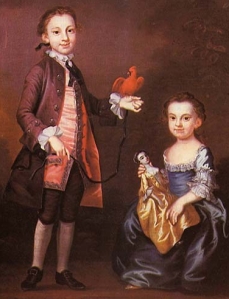![Holly+Headshot_2bw[2]](https://earlyamericanists.files.wordpress.com/2018/09/hollyheadshot_2bw2.jpg?w=286&h=307) If you missed previous posts in our new roundtable series on the history of childhood and youth, click here. On Mondays, Wednesdays, and Fridays for the next few weeks, stop by to read about challenges and realities of researching and teaching childhood and youth across vast early America.
If you missed previous posts in our new roundtable series on the history of childhood and youth, click here. On Mondays, Wednesdays, and Fridays for the next few weeks, stop by to read about challenges and realities of researching and teaching childhood and youth across vast early America.
Today’s interview comes from Holly N.S. White (Ph.D., College of William & Mary) who is an assistant editor of Publications and Digital Projects at the Omohundro Institute of Early American History and Culture and an assistant producer of Ben Franklin’s World: A Podcast about Early American History. She specializes in the history of age, childhood, and youth as well as the histories of gender, family, and law in the early America. Her research focuses on the definition and negotiability of age in early American law and society, which is the subject of her forthcoming first book, Negotiating American Youth: Age, Law, and Culture in the Early Nineteenth Century. Be sure to check out Holly’s Junto piece from last month, ““young appearance”: Assessing Age through Appearance in Early America!” Continue reading
 “My friends and I might still be 11, and we might still be in elementary school, but we know . . . that we have seven short years until we too have the right to vote.”
“My friends and I might still be 11, and we might still be in elementary school, but we know . . . that we have seven short years until we too have the right to vote.”